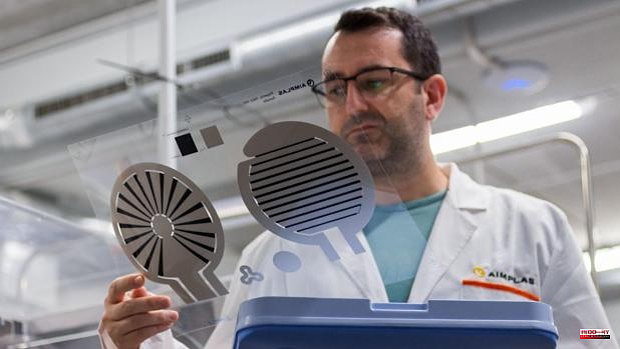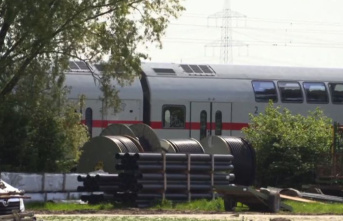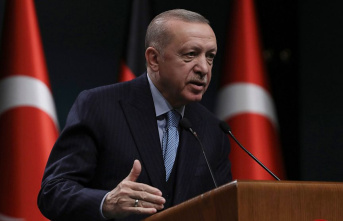The Generalitat Valenciana, through the Agència Valenciana de la Innovació (AVI), finances the development of a heated tray via USB to heat the menus that are served to people admitted to hospital centers and thus guarantee that the food maintains the ideal temperature until the moment of its consumption. In this way, the food will be more appetizing, which will result, in turn, in an improvement in the quality of the service and the levels of satisfaction of the patients.
The innovation project, baptized as 'D-CALENT', is led by the Technological Institute of Plastics, Aimplas, which counts for its development with the collaboration of the Department of Electronic Engineering of the University of Valencia.
This is an initiative backed by more than 170,000 euros within the framework of the program for the assessment and transfer of research results to companies, with which the AVI encourages the development of prototypes, technological demonstrators and pilot projects.
Although hospital menus are served in isothermal trays precisely to keep the food at an ideal temperature, there is the possibility that hospitalized people receive the food lukewarm or already cold, since the insulation of the current trays is sometimes insufficient to avoid the heat loss that occurs from the time the preparations are plated or heated until they are distributed.
To respond to this problem, Aimplas is developing a heated tray, made of thermoplastic materials, which allows both regeneration, that is, bring refrigerated or frozen food to consumption temperature, such as heating menus in situ for each patient , without the need to resort to any external element.
To achieve this, work is being done on the development and integration of a thin layer, flexible, heatable resistor in the structure of the tray.
"All this will allow us to have a low-cost, efficient and reusable solution for use in any hospital environment," one of the project researchers and technician from the Aimplas Engineering cell, Víctor Sevilla, specifies in a statement.
Currently, there is no reusable and economical solution on the market that allows food to be heated or regenerated in the patient's own room. Traditional microwaves are the only alternative, but their installation in each room would entail high investment, maintenance and cleaning costs.
However, the design in which Aimplas works enables the patient himself to heat his menu on the spot, just before consuming it, given that the tray has a USB port to connect to a conventional power outlet, with lower efficient energy consumption at 30W. In addition, the device, made of thermoplastic materials, will reach between 70 and 80 degrees Celsius, a sufficient temperature to carry out its task.
In the same way, "the tray will be compatible with the industrial processes that are carried out in hospital kitchens, focusing on automatic washing and the standard dimensions of this type of service, as well as food safety", concludes the researcher Victor Seville.
And it is that the results of the project will be transferred to different companies in the container and packaging sector; to catering and convenience food companies; as well as research centers in the health field.
In this regard, the Regional Minister for Innovation, Universities and Digital Society, Josefina Bueno, highlighted the numerous opportunities for innovation that are emerging in the health sector, to which a large part of the Community's scientific and technological community is devoted. Valenciana: «The challenge now is to consolidate a powerful business fabric in this area, which allows us to diversify our economy and increase its added value».
For his part, the executive vice-president of the AVI, Andrés García Reche, underlined the advantages offered by collaboration between agents of the innovation system in solving challenges, especially those related to health: "This initiative, which is the result of the joint work of Aimplas and the University of Valencia, aims to further raise the quality of hospital restoration, which stands as a fundamental element for people admitted to our health centers to recover from their respective ailments in the most quickly and successfully as possible.
'D-CALENT' is aligned with the Smart Specialization Strategy of the Valencian Community, known as RIS3, which is coordinated by the Department of Innovation, Universities, Science and Digital Society, and which includes as axes of action both the increase in the quality of life , such as the development of innovative products and the promotion of advanced manufacturing processes
In the same way, the project also connects with the conclusions of the committee for innovation in Food and Hospital Diet, which placed as one of the priority challenges the development and application of new preparation processes or marketing formats to guarantee the organoleptic qualities for longer. optimum food.












